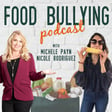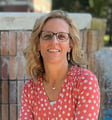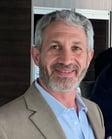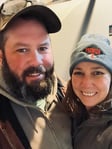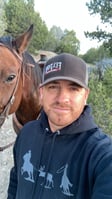
Healthy fields, happy farmers - drones deliver sustainability: Episode 139
Where’s the future of food production? You might want to look to the sky.
In this episode of the Food Bullying podcast, Nicole and Michele chat with Sarah Hovinga of Bayer Crop Science in California and Bryan Sanders of HSE-UAV in Washington about how precision agriculture is transforming farming.
According to Sanders, drones REDUCE 1) the amount (and cost) of pesticides used 2) human exposure by keeping the applicator away from the actual pesticide (since the drone is doing the spraying) and 3) pesticide drift thanks to the intentional downward movement the propellers create which helps push the pesticide into the crop with centimeter level accuracy. Drones also help by creating good-paying tech jobs in farming, inspiring young people to get into farming - but he says consumer misunderstanding of the role of pesticides in our food system still runs rampant.
“Blaming and pointing the finger at farmers, applicators, and the chemical industry is an easy and popular narrative that anti-agriculture groups promote which helps them in turn gain funding from their sponsors,” says Hovinga.
The reality? Hovinga shares the following: “My friend once asked me: ‘I am so confused, what food in the store is safe to eat?’ Do you know what I told her? ‘Everything.' And it's because of the robust regulations around food in the United States. How cool is that?”
We think it’s very cool indeed. We also think dietitians and those who prioritize nutrition need to understand where the future of agriculture is going to help reduce fear-mongering. Who can you share this episode with
Sarah does a lot on social media under the AgScienceMom handle - be sure to check it out for great examples of precision agriculture in action. You can find her on Instagram, LInkedin at https://www.linkedin.com/in/sarahhovinga/, Facebook, and Twitter.
Bryan love technology that flies, but isn't as active on social media. However, his company has accounts across all social media channels under HSE-UAV where you can see drones in action.


